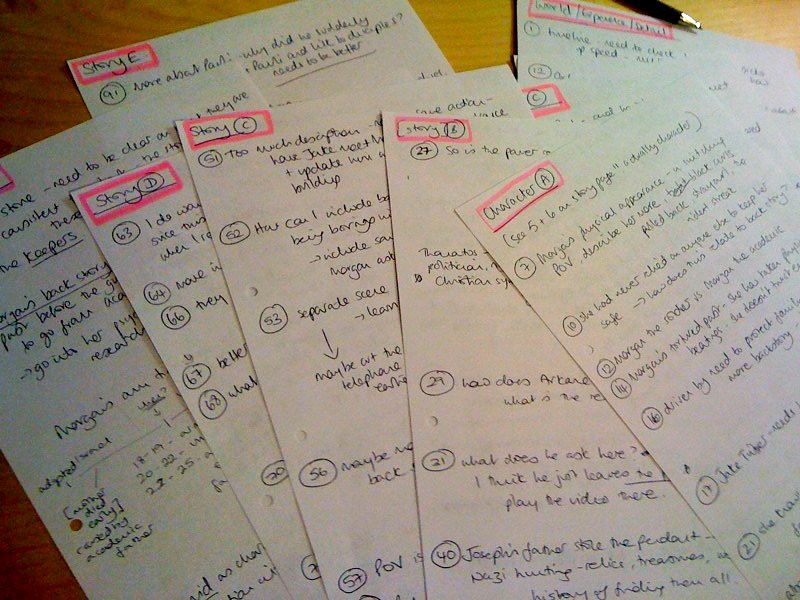ever becomes a master.” Ernest
Hemingway
In September of 2007, I started this blog
with a bit of writing advice. A little over a year later, I discovered how
little I knew about writing after hearing children’s writer, Lin Oliver speak
at a convention hosted by the Minnesota Society of Children’s Book -Writers and
Illustrators. Since then, I have shared (with their permission) and applied the
writing wisdom of Lin Oliver, Jack McDevitt, Nathan Bransford, Mike Duran,
Kristine Kathryn Rusch, SL Veihl, Bruce Bethke, and Julie Czerneda. Together
they write in genres broad and deep, and have acted as agents, editors,
publishers, columnists, and teachers. Since then, I figured I’ve got enough
publications now that I can share some of the things I did “right” and I’m busy
sharing that with you.
While I don’t write full-time, nor do I make
enough money with my writing to live off of it...neither do all of the
professional writers above...someone pays for and publishes ten percent of what
I write. When I started this blog, that was NOT true, so I may have reached a
point where my own advice is reasonably good. We shall see! Hemingway’s quote above
will now remain unchanged as I work to increase my writing output and sales! As
always, your comments are welcome!
“Any shift of POV…to another is a dangerous one. It’s a major change of
voice…The shift will affect the whole tone and structure of your narrative…A
writer must be aware of, have a reason for, and be in control of, all shifts of
viewpoint character…I feel like writing the last two paragraphs all over again,
but that would be rude. Can I ask you to read them over again?” (p 70)
Then I am a danger-loving daredevil in my next book, VICTORY OF FISTS.
As I pointed out before (in Part2), I flipped from first person to limited
omniscient every other chapter.
Quite likely, this is what kept me from finding a home for the book
until I sent it to my agent, Karen Grencik who eventually sent it to daring
Canadian publisher, Lea Schizas
at MuseItUp…both of them loved it enough to both represent it and publish it.
That still doesn’t diminish the fact that I wrote against the advice of
one of the most respected and significant writers of speculative fiction.
As for changing the voice of the narrative…wow. I go back and forth
from an intimate narrative of a young guy trying to redirect his urge to punch
people in the face by writing poetry (and reading about other warrior-poets in
history like King David, Sri Aurobindo, and Muhammed Ali) as well as trying to
keep his ex-best-friend at bay – and you read about what’s happening INSIDE
him.
Then I go back to a movie point of view where you read about what’s
happening TO him.
Then I go back.
But this was the best way to write the story! There wasn’t any other
way to achieve what I wanted. While LeGuin doesn’t exactly give her nod of
acceptance, she DOES note that if you are going to break the rule, then do it
intentionally and “be aware of, have a reason for, and be in control of, all
shifts”.
Ultimately, my success or failure in trying this will be determined by
the young people who read my book – and by the adults who CHOOSE books for young
people to read. I’ll keep y’all posted!
Another issue that I’ve worked on harder since reading the book, “By
crowding I mean keeping the story full, always full of what’s happening in it;
keeping it moving, not slacking or wandering into irrelevancies; keeping it
interconnected with itself, rich with echoes forward and backward. But leaping
is just as important. What you leap over is what you leave out, which is
infinitely more than what you leave in…Some say God is in the details, some say
the Devil is in the details. Both are right…go ahead and crowd in the first
draft…Then in revising consider what merely pads or repeats or slows or impedes
your story and cut it. Decide what counts, what tells, then cut and recombine
until what is left is what counts. Leap boldly.” (p 118)
Powerful words. Very powerful.
Before reading the book, I noticed that when I write short stories,
they tend to be very close to 6000 words long. Whatever I try, I can’t seem to
make them shorter. The problem with this is that it’s so close to the 7500 word
limit usually assigned to short stories. Longer than that gets you into the
almost un-sellable novelette (up to 17,500 words) and the practically suicidal
novella which is from 17,500 up to 40,000 (which can be a middle grade novel!
With this advice though, I started to look at what I can leave out and
what I can include and while I haven’t submitted any stories using this rule, I
have finished two and I’m working on a third. The question now when I write is,
“What do I leave in to make the story vivid enough – yet continue to move the
story forward?”
If I cut too much, then the story fades from being engaging to being
something someone “watches” – rather like a typical sitcom on TV. It’s not that
the form CAN’T be engaging, it’s just that it’s so much work to write an
engaging story that keeps not only the current plot moving forward, but also
contributes to moving the story arc forward (Joss Whedon did this incredibly
well in the FIREFLY series; Anne McCaffrey did this in the original Pern stories
in ANALOG in the late 1960s as well).
I am working on a series of short stories set in different futures –
one in which Humanity has split into a “genetically purist” line and a “genetically
experimentalist” line and there are no aliens; the other in which Humanity has
pulled into huge arcologies on Earth in order to let the land recover and here
are aliens. I hope I’m beginning to learn this skill.
So, what have I learned in the three parts of this series? I can’t
apply every single suggestion from the book, so what IS the takeaway?
1) Keep the story going somewhere.
2) Use language well.
3) Point to a higher purpose.
4) Take responsibility!
5) If you’re going to break the rule, KNOW WHAT YOU’RE DOING!
6) Story is events that make it seem like time passing that leads to change.
7) Plot is action, usually conflict, that connects the events
logically and ends in a climax.
8) Decide what matters so that every word counts, leaping over the
other stuff BOLDLY.
I will keep you
informed of how I apply these eight points as I continue to grow as a writer.
Writing_at_Campsite_in_Kenya_-_NARA_-_192655.jpg


